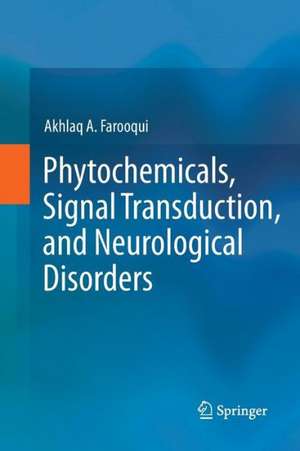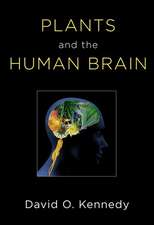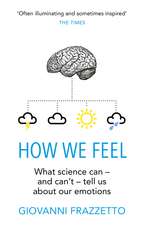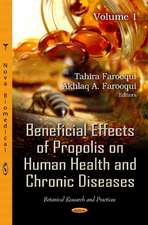Phytochemicals, Signal Transduction, and Neurological Disorders
Autor Akhlaq A. Farooquien Limba Engleză Paperback – 8 aug 2014
| Toate formatele și edițiile | Preț | Express |
|---|---|---|
| Paperback (1) | 948.29 lei 43-57 zile | |
| Springer – 8 aug 2014 | 948.29 lei 43-57 zile | |
| Hardback (1) | 952.89 lei 43-57 zile | |
| Springer – 11 iul 2012 | 952.89 lei 43-57 zile |
Preț: 948.29 lei
Preț vechi: 1156.45 lei
-18% Nou
Puncte Express: 1422
Preț estimativ în valută:
181.46€ • 189.93$ • 151.03£
181.46€ • 189.93$ • 151.03£
Carte tipărită la comandă
Livrare economică 31 martie-14 aprilie
Preluare comenzi: 021 569.72.76
Specificații
ISBN-13: 9781489991065
ISBN-10: 1489991069
Pagini: 376
Ilustrații: XXIV, 352 p.
Dimensiuni: 155 x 235 x 20 mm
Greutate: 0.53 kg
Ediția:2012
Editura: Springer
Colecția Springer
Locul publicării:New York, NY, United States
ISBN-10: 1489991069
Pagini: 376
Ilustrații: XXIV, 352 p.
Dimensiuni: 155 x 235 x 20 mm
Greutate: 0.53 kg
Ediția:2012
Editura: Springer
Colecția Springer
Locul publicării:New York, NY, United States
Public țintă
GraduateCuprins
Chapter 1. Effects of life style and aging on the onset of neurological disorders.- Chapter 2. Beneficial effects of extra virgin olive oil (n-9 fatty acids) on neurological disorders.- Chapter 3. Beneficial effects of flaxseed oil (omega-3 fatty acids) on neurological disorders.- Chapter 4. Beneficial effects of flavonoids on neurological disorders.- Chapter 5. Beneficial effects of green tea catchins on neurological disorders.- Chapter 6. Beneficial effects of curcumin on neurological disorders.- Chapter 7. Beneficial effects of resveratrol on neurological disorders.- Chapter 8. Beneficial effects of Ginkgo biloba on neurological disorders.- Chapter 9. Beneficial effects of garlic components on neurological disorders.- Chapter 10. Beneficial effects of propolis on neurological disorders.- Chapter 11. Perspective and direction for future research on phytochemical in neurological disorders.
Caracteristici
Presents readers with cutting edge and comprehensive information on bioavailability and mechanism of action of phytochemicals in the brain Provides information on the molecular mechanism associated with the beneficial effects of phytochemicals in neurotraumatic and neurodegenerative diseases Includes information on delaying the onset and target-based treatment of neurological disorders by using phytochemicals Includes supplementary material: sn.pub/extras















